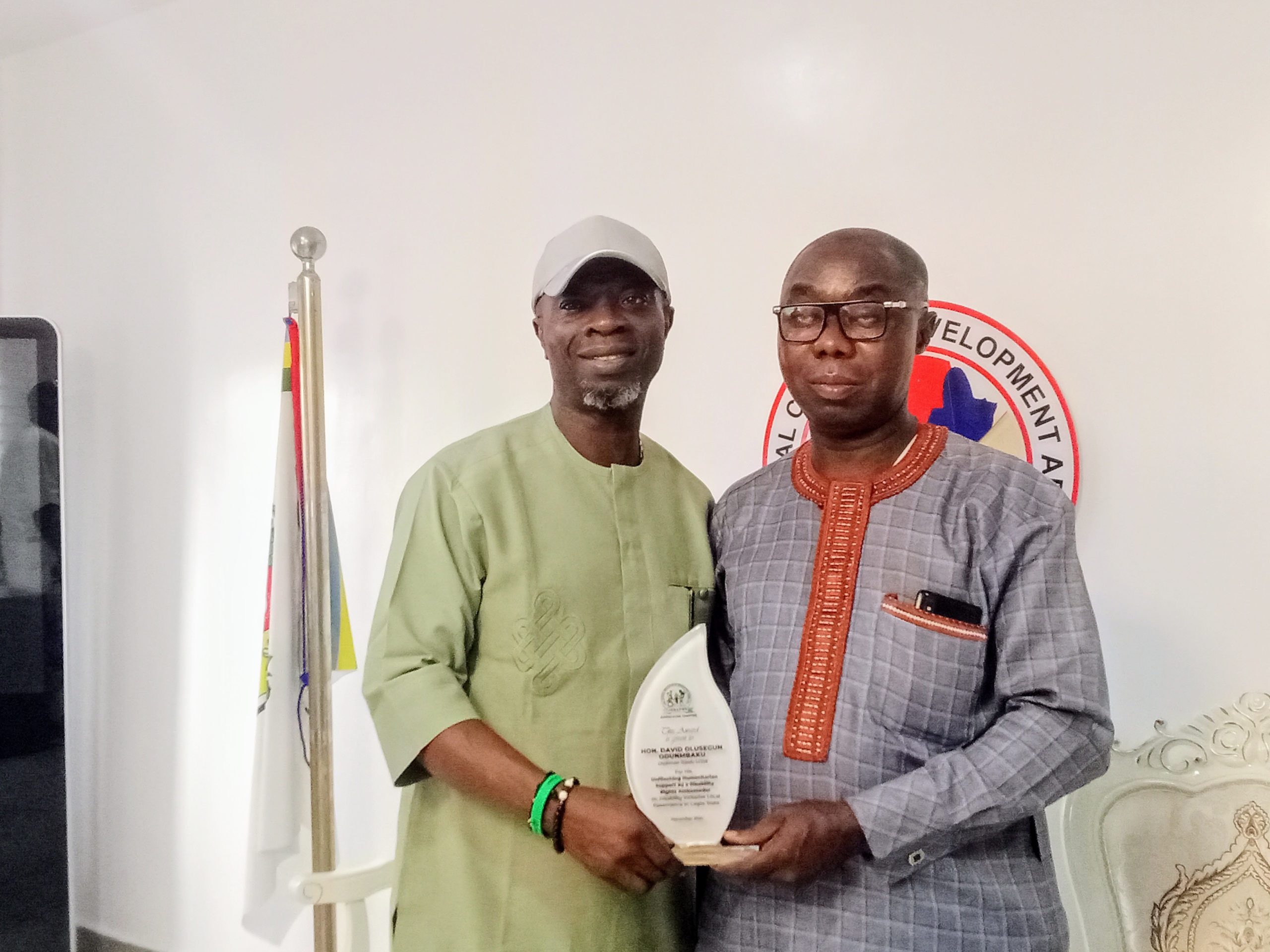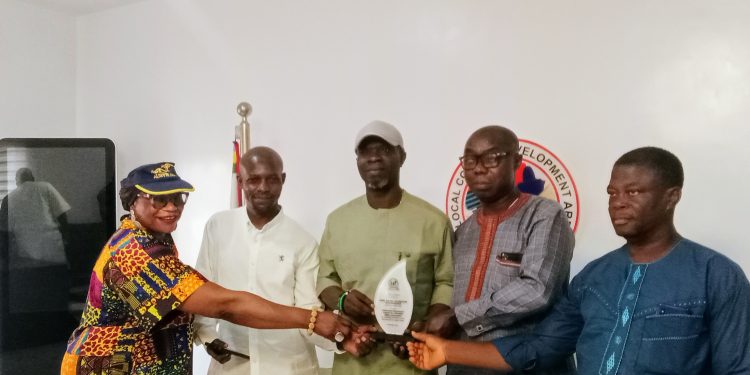Honourable David Olusegun Odunbaku, Executive Chairman of Ojodu Local Council Development Area, Ikeja, Lagos, has had a profound impact on the community, where he has worked tirelessly to improve the lives of the residents, especially people with disability (PWD).
Notably, he has prioritised creating an inclusive environment, ensuring that people with disabilities have a safe and supportive space. In this interview with the National Association of Persons with Physical Disabilities (NAPWPD), he discusses his journey towards disability inclusion, the challenges he has faced, and his vision for empowering PWDs in his LCDA.

Question: What inspired you to prioritise disability inclusion in Ojodu LCDA, and how has this shaped your leadership approach?
Answer: The inspiration to prioritise disability inclusion in Ojodu LCDA stems from the recognition that individuals with disabilities are valuable members of our community. They are our brothers, sisters, uncles, and constituents, deserving of equal opportunities and participation in community activities.
For me, it was not a difficult decision to make. I firmly believe that everybody is important, and every individual has a role to play in our ecosystem. By embracing disability inclusion, we can create a more equitable and just society.
Question: You have led some innovative projects and initiatives that have positively impacted persons with disabilities in your local government. Can you share some of them?
Answer: The approach is not only about providing financial assistance but also about empowering individuals with disabilities to achieve their dreams and aspirations. We strive to create an environment that is supportive, inclusive, and enabling, by allowing everyone to contribute and participate fully.
Question:: What challenges have you faced in implementing disability-inclusive programs, and how have you overcome them?
Answer: Implementing disability-inclusive programs can be challenging, but it is important to note that we are working to address these issues. One of the main challenges faced is the lack of a legal framework to support disability-inclusive programs. However, it’s encouraging to know that a team of experts are currently working on developing this framework, which will help ensure that the local council’s initiatives are sustainable and effective.
Some organizations, like the International Disability Alliance, are also working to promote disability-inclusive development and support the implementation of the Convention on the Rights of Persons with Disabilities (CRPD).
Question: Are there partnerships with non-governmental organizations, international bodies, or private sectors that have supported your disability inclusion agenda?
Answer: Regarding partnerships with non-governmental organisations, international bodies, or private sectors, we are taking a strategic approach. We have lost confidence in some international partners, so we’re focusing on building our internal structures. Once we have a solid foundation, we can reach out to organisations to tell them what we’ve achieved so far and ask for support to reach the next level. Without these structures in place, it would be challenging to seek help from international organisations.
Question: How do you feel about being awarded as a disability champion, and what does this recognition mean to you personally and professionally?
Answer: Regarding the recognition as a Disability Champion, it means a lot to me. It acknowledges the efforts we are making to support people with disabilities (PWDs). This recognition is not just a personal honour but also a privilege that motivates me to do more. I am committed to continuing our work with PWDs, and this award will serve as a reminder of my promises and responsibilities. Thank you.
Question: Looking ahead, what are your long-term plans to sustain and expand disability inclusion efforts in Ojodu LCDA?
Answer: Looking ahead, the long-term plan is to sustain and expand disability inclusion efforts in Ojodu LCDA. To achieve this, we are currently developing a legal framework that will provide a solid foundation for our initiatives. One of our flagship programs is providing transportation for school children with disabilities. We started with 35 children and have now expanded to 60. Our goal is to acquire a dedicated school bus to facilitate their transportation to and from school.
Furthermore, we are committed to providing comprehensive support for individuals with disabilities. This includes providing essential items such as wheelchairs, glasses, crutches, and stretchers.
Our ultimate goal is to create an inclusive society where individuals with disabilities feel valued, supported, and empowered to reach their full potential.
By implementing these initiatives, we aim to promote a culture of inclusivity and social responsibility in Ojodu LCDA. We believe that everyone deserves equal opportunities and access to resources, regardless of their abilities.
Question: How can you encourage other politicians and public officeholders to enhance disability inclusion in their works?
Answer: We are in a country where we must ensure that everyone within the ecosystem is valued and appreciated and, to be frank, I can see dedicated and knowledgeable people amongst them who add so much value to the administration. I will encourage everyone to stop seeing them as unproductive; they are very productive and more productive than some without disability. Give it a try and see how prepared to see the organisation grow.

